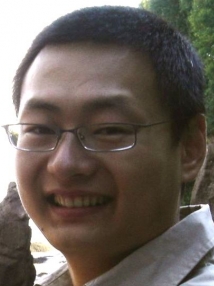The School of Computer Science welcomes the opportunity to hear from Dr Changyu Dong, from the Department of Computer and Information Sciences University of Strathclyde, who will be delivering his talk on ‘Efficient Privacy Preserving Data Mining via Secure Computation’. 
Abstract: Loosely speaking, secure computation allows parties to compute a function jointly while keeping their inputs private. Participants of secure computation learns only the output of the function, but nothing about the others’ private inputs. An oblivious application of secure computation is privacy preserving data mining. Imagine a scenario in which Amazon and Facebook want to find correlations between their users’ activities. With current technology, this cannot happen because none of the companies is willing to disclose its own data to the other. Secure computation can remove this barrier because data remains private during and after the computation. In the past, secure computation is considered to be only theoretical because of its inefficiency. Recently much effort has been made to make secure computation practical. In this talk, I will present some recent advancements in this area. I will first introduce Private Set Intersection (PSI), an important secure computation primitive, and how it can be realised efficiently. I will show how PSI can be applied to linking record in databases (private record linkage) and finding association rules. I will then show how fully homomorphic encryption, an emerging cryptographic technology, can be used in building efficient secure computation protocols, and in turn be used for privacy preserving data mining.
Bio: Changyu Dong is a lecturer at the University of Strathclyde. He obtained his PhD from the Department of Computing at Imperial College London in 2009. His research is in cyber security, specifically in applied cryptography. Since 2006, He has published 27 research papers in major journals and international conferences, including the most prestigious venues in security such as ACM CCS, ESORICS and Journal of Computer Security. He has served on and chaired program committees for many conferences and workshops, and is a regular invited reviewer for top international journals including Journal of Computer Security, IEEE Transactions on Dependable and Secure Computing and IEEE Transactions on Information Forensics and Security. Shortly after moving to Strathclyde in 2011, he started his research on efficient secure computation. This research direction has led to some breakthroughs in secure computing for Private Set Intersection and Private Information Retrieval protocols, which he applied in domains such as data mining.